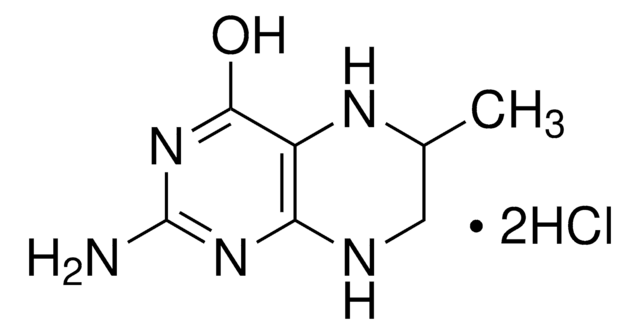C2037
Cytochrome c from bovine heart
≥95% based on Mol. Wt. 12,327 basis
About This Item
Productos recomendados
biological source
bovine heart
assay
≥95% based on Mol. Wt. 12,327 basis
form
powder or crystals
mol wt
12327 Da
technique(s)
cell based assay: suitable
suitability
suitable for molecular biology
UniProt accession no.
application(s)
cell analysis
storage temp.
−20°C
Gene Information
cow ... CYC1(512500)
¿Está buscando productos similares? Visita Guía de comparación de productos
General description
Application
- for cytochrome oxidase staining using the mice brain tissue
- as a component of control mixture to evaluate the accuracy of tandem mass spectra in identifying peptides
- to study its effect on the stability, transport, and retention of biochar colloids (BCs) in saturated porous media under various solution pH and ionic strength (IS) conditions
- as a component of staining solution for the detection of cytochrome oxidase activity in the brain tissue sections of mouse
- as a component in the assay to study its superoxide scavenging efficiency
- as a component of serum-free DMEM media to evaluate non-specific cytochrome C reduction in astrocytes and HT-29 cells
Biochem/physiol Actions
Cytochrome c has been identified as an important mediator in apoptotic pathways. The release of mitochondrial cytochrome c into the cytoplasm stimulates apoptosis and is commonly used as an indicator of the apoptotic process in the cell. Investigation on the effect of Paris Saponin I (PS I) on human gastric carcinoma cell growth (SGC7901 cells) have shown an elevated level cytoplasmic cytochrome c. Results are an inhibition of proliferation in SGC7901 cells by inducing mitochondria-dependent apoptosis through cytochrome.
Preparation Note
Other Notes
Storage Class
11 - Combustible Solids
wgk_germany
WGK 3
flash_point_f
Not applicable
flash_point_c
Not applicable
ppe
Eyeshields, Gloves, type N95 (US)
Certificados de análisis (COA)
Busque Certificados de análisis (COA) introduciendo el número de lote del producto. Los números de lote se encuentran en la etiqueta del producto después de las palabras «Lot» o «Batch»
¿Ya tiene este producto?
Encuentre la documentación para los productos que ha comprado recientemente en la Biblioteca de documentos.
Los clientes también vieron
Chromatograms
application for HPLCapplication for HPLCapplication for HPLCNuestro equipo de científicos tiene experiencia en todas las áreas de investigación: Ciencias de la vida, Ciencia de los materiales, Síntesis química, Cromatografía, Analítica y muchas otras.
Póngase en contacto con el Servicio técnico







